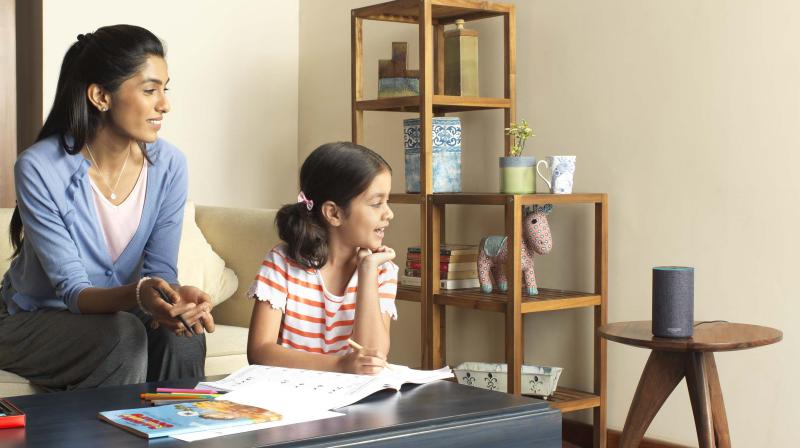Ask Alexa didi!
19 November, 2018

Smart devices are edging themselves into our homes - and how! Like the camel's snout which led the slow the crawl into the Arab’s tent, smart TVs came in the first wave, merging the twin worlds of dish and Internet video. Smart assistants were next -- led by Amazon and Google — cocooned in speakers like Echo and Google Home which supported voices like Alexa and Google Assistant. Both took their time to launch in India — aware that Indian languages, even English as spoken by Indians, posed a challenge for any voice recognition system.
Amazon was the first here -- just over a year ago -- and the company marked the first anniversary with new editions of the flagship smart speaker -- the second generation Echo Plus -- and the updated version of the mini speaker, Echo Dot. I have been trying out both for a week now and the sound appears slightly better than before -- but that is not the big thing. What has happened in the 12 months gone by, is the Indianisation of Alexa. She is much cleverer in understanding a broad range of Indian English, even Hinglish. You can say: "Alexa, set my alarm for 6 am, to play Venkateswara Suprabatham," or "Alexa, what is Kohli's score in the IPL?" without having to explain the context or repeat yourself.
The other big change is not so much in Alexa, but the entire ecosystem of smart home devices that have now emerged in India, around the voice market leaders, Amazon and Google. We have reviewed Syska smart lamps, Linksys routers, Mi air purifiers -- all ready to take commands from Alexa. Instead of trying to create voice assistants of their own, leading audio brands like Bose, Jabra and Harmon have embraced the dominant smart voice standard. Once you have installed the Echo Dot or Echo Plus (and this is easily done with a phone app and a home Wi-Fi connection) you can ask Alexa to connect you to a variety of services that are being called conversational commerce: from Box8 to Byju's, from GiIbibo to the Golden Temple, from Ola to Uber.... it can get so addictive, you may well say: "Why type, when you can talk?"
The Echo Plus at Rs 14,999 is Rs 10,000 costlier than the Echo Dot at Rs 4,999. But in most respects, except range and audio volume, the functions are almost identical. In fact, you can use a Dot or two to extend the range of the Plus across your home. Both of them share what I thought was a downside: There is no in-built battery option and you need an always-on mains connection, which could be a nuisance. I'm betting this will change once the competition hots up.
What Echo Plus gives for the extra money, is a built-in hub called Zigbee Smart Home, which is one of two leading standards for home automation. So if you plan to eventually control your washing machine, microwave, fridge, air conditioner and home security cameras from one voice device, this may be a sensible investment. But if all you want is a savvy, all-knowing "didi" to serve as a vocal friend, guide and service provider, the little Echo Dot ( gen 2) does very well thank you!
In some places in Bangalore, you may not even have to buy this. The Embassy group of builders has launched a brand of smart apartments called Embassy Edge, which come pre-installed with Amazon Echo devices. Alexa may soon welcome you to your new home with a swagatham!
TAG(s):
